Manifesto of the Decentralized Dream
They say we’re a flawed species, stumbling through the darkness, clutching at power like it’s the last bottle on a sinking ship. Look around: empires rise and fall, currencies inflate and deflate like a cosmic joke, and the common voice gets drowned in the cacophony of ambition. Communism tried to level the field, capitalism tipped the scales, and here we are—caught in the crossfire of ideals and realities.
But what if we could flip the script? Tear down the puppeteer’s stage and hand the strings over to the crowd? Not chaos, not anarchy—a symphony where every note counts, where the melody is crafted by us all.
Enter the Decentralized Democracy—a system where power doesn’t trickle down from gilded towers but surges up from the streets, the cafés, the buzzing digital forums. Here, everyone gets a say—a real one—not just a token gesture every election cycle.
The Blueprint
Imagine a world where every vote matters, etched permanently onto a blockchain—a ledger that doesn’t bend to whims or wallets. No more shadowy backroom deals, no more laws slipping through the cracks of bloated bureaucracy. Legislation is proposed, debated, and decided by the collective. Transparent. Unchangeable.
But let’s be real. Not everyone’s an expert on climate science or economic policy, and that’s okay. In this system, votes are weighted—not by wealth or status, but by knowledge and expertise. You earn your stripes through education, experience, contribution. A scientist’s vote on environmental policy carries more weight than that of a layman, but both are heard.
The Edge
This isn’t just some utopian daydream. It’s a calculated risk—a gamble on ourselves. The benefits are as clear as they are profound: • True Representation: No more proxies or middlemen. Your voice is your own, echoing in the halls of digital governance. • Informed Decisions: Policies shaped by those who know them best, steering the ship with a steady hand. • Transparency and Trust: With blockchain, every transaction, every vote, is a matter of public record. No smoke. No mirrors.
The Shadows
But every light casts a shadow: • The Populist Trap: Give the crowd too much sway, and you risk the tyranny of the majority. Waves of emotion can capsize the ship of reason. • Access and Inequality: Not everyone has equal access to technology or education. We risk widening the gap we seek to close. • The Data Dilemma: A system so reliant on digital infrastructure is a ripe target for those who’d love to see it fail.
The Safeguards
We’re not naive. We’ve built in checks, balances—circuit breakers for when the system overheats: • Expert Panels: Before a vote hits the public, it passes through a gauntlet of scrutiny by verified experts, filtering out the noise. • Constitutional Backbone: An immutable set of rights and principles that no majority can overturn—the bedrock of our society. • Education Initiatives: Uplift the many by providing access to learning, narrowing the chasm of inequality.
The Road Ahead
This won’t be easy. The old guard won’t relinquish power without a fight. There will be hurdles, missteps, maybe even failures. But progress isn’t a straight line; it’s a rugged climb.
This manifesto isn’t just a proclamation—it’s an invitation. To those tired of the same old song and dance, who feel the weight of decisions made in rooms they’ll never see. It’s time to take a stand, to mold the future with our own hands.
We are flawed, yes. But within those imperfections lies the spark of innovation, the drive to be better than we were yesterday.
Let’s rewrite the story, one block at a time.
Breaking the Chains: A New Democracy Forged on the Blockchain
Abstract
We’re standing at the crossroads of history, where the old systems are crumbling under the weight of their own contradictions. This isn’t just another white paper—it’s a manifesto for a new era. We’re proposing a radical shift: a political and monetary system that doesn’t just tip its hat to democracy but lives and breathes it. By leveraging blockchain technology, we’re putting power back where it belongs—in the hands of the people. No more middlemen, no more illusions. Just a transparent, secure, and inclusive system where every voice matters, and expertise guides the way.
- Introduction
For too long, we’ve been caught in the tug-of-war between capitalism and communism, each promising utopia but delivering something far less. These systems, riddled with centralized power and human flaws, have left us disillusioned. Let’s face it—we’re imperfect beings prone to bias and error. But what if we could design a system that rises above our imperfections? A system that maximizes participation and fairness while minimizing the pitfalls of human nature. It’s time to reimagine democracy, to make it more than a lofty ideal.
- The New Blueprint
2.1. Direct Democracy via Blockchain
Say goodbye to the days of handing over your voice to someone else. In this new order, you are the policymaker. • Blockchain Backbone: Every vote you cast is etched into an unchangeable ledger. No tampering, no manipulation—just pure, unadulterated democracy. • Algorithmic Governance: Smart contracts take the reins, executing decisions without human error or bias. The law becomes code, and the code is law.
2.2. Weighted Voting Based on Expertise
Let’s be honest—not all opinions are created equal when it comes to complex issues. That’s why your vote carries more weight where your expertise shines. • Earn Your Influence: Credentials, experience, proven knowledge—these aren’t just trophies; they’re your ticket to greater influence on issues that matter. • Dynamic Influence: As you grow, so does your impact. Your voting weight adjusts with your evolving expertise.
- Making It Happen
3.1. Establishing Expertise • Verification on the Chain: Your qualifications are validated and recorded on the blockchain. No more fakes slipping through the cracks. • Lifelong Learning: Knowledge is power, literally. Educational platforms let you expand your influence by expanding your mind.
3.2. The Voting Mechanism • Rock-Solid Security: Biometric data and cryptographic keys ensure your vote is yours and yours alone. • Transparent Yet Private: Votes are open for auditing, but your identity stays under wraps. Participate without sacrificing privacy. • Accessible to All: User-friendly interfaces mean you don’t need a tech degree to have your say.
- The Hurdles We Face
4.1. Populism and Mob Rule • The Risk: Without checks, direct democracy can spiral into chaos, driven by fleeting emotions and misinformation.
4.2. Disinformation and Manipulation • The Risk: False information can poison the well, skewing public opinion and derailing sound decision-making.
4.3. Technological Barriers • The Risk: If not everyone can access the tech, we risk creating a new class of voiceless citizens.
- Building the Safeguards
5.1. Councils of Expertise • The Gatekeepers: Panels of experts review proposed legislation to ensure it’s feasible and rights-compliant before it hits the public floor. • Rotating Membership: No entrenched power here. Experts are rotated regularly to keep the system fresh and unbiased.
5.2. An Unshakable Ethical Core • Foundational Principles: A constitution that enshrines fundamental rights and ethics, untouchable by fleeting majorities. • Judicial Oversight: An independent judiciary, maybe even with algorithmic assistance, keeps new laws in check with our core values.
5.3. Battling Misinformation • Truth Hubs: Integrated platforms deliver verified facts and deep analyses on the issues at hand. • Educate to Empower: Media literacy programs arm citizens with the skills to sift truth from lies.
5.4. Tech for the People • Bridging the Divide: Massive investment in tech infrastructure ensures everyone can plug into the system. • Guiding Hands: Support services help citizens navigate this new landscape with confidence.
5.5. Emergency Measures • Swift Action Protocols: When immediate intervention is needed, predefined processes allow for temporary measures, always accountable to the people.
- Rewriting the Economic Playbook
6.1. A Decentralized Economy • Digital Currency: A blockchain-based currency makes transactions transparent and cuts corruption off at the knees. • Economic Voices: You get a say in how taxes are levied and spent. The economy serves the public interest, not the other way around.
Why This Matters • True Empowerment: This isn’t just about having a voice—it’s about that voice making a real difference. • Smart Governance: Decisions influenced by those who know best, leading to policies that actually work. • Built on Trust: Transparency isn’t a feature; it’s the foundation. Trust isn’t demanded; it’s earned. • Future-Proof: This system isn’t set in stone. It evolves, adapts, and grows along with society.
Conclusion
We’re not just proposing a new system—we’re igniting a revolution of participation, transparency, and fairness. It’s a bold move, no doubt. There will be challenges, naysayers, and obstacles we can’t yet foresee. But the status quo isn’t just broken; it’s shattered. It’s time to build something better, something that truly reflects the will and wisdom of the people.
Next Steps • Pilot the Vision: Launch small-scale trials to work out the kinks and prove the concept. • Engage the Masses: Open dialogues across diverse communities to refine and strengthen the system. • Invest in the Future: Pour resources into the tech and infrastructure that will make this vision a reality.
References • Blockchain in Governance: Diving deep into how decentralized ledgers can revolutionize democratic processes. • The Balance of Merit and Democracy: Finding the sweet spot between expertise and equal representation. • Safeguarding Direct Democracy: Tactics for shielding the system from populist pitfalls.
Unveiling the Illusion: A Stark Comparison of Governance
You see, the world’s a stage filled with puppets masquerading as leaders, pulling strings that aren’t theirs to pull. Let’s cut through the facade and lay it bare. We’ll compare this new, unshackled system to the so-called powerhouses of governance: the USA, Russia, Austria, the UK, and Norway. Time to hold a mirror to their flaws and virtues.
- United States of America (USA)
Government Type: A federal constitutional republic that parades as a representative democracy.
Pros of Our Proposed System Over the USA: • Direct Control: No more waiting for election cycles that offer choices between the lesser of two evils. You vote on the laws that shape your life. • Brains Over Bluster: Weighted votes ensure decisions aren’t left to the whims of the uninformed. Expertise drives policy, not popularity contests. • Transparency Unleashed: Blockchain doesn’t play favorites. Every transaction, every vote—out in the open for all to see.
Cons Compared to the USA: • Breaking the Mold: Dismantling a centuries-old system isn’t for the faint of heart. The transition would be a labyrinth of legal and societal hurdles. • The Left Behind: Weighted voting could sideline those without fancy degrees or titles. Equality takes a hit when expertise is the gatekeeper. • Digital Divide: Not everyone’s plugged into the matrix. Tech gaps could leave voices unheard, widening the chasm we aim to close.
- Russia
Government Type: A federal semi-presidential republic with power clenched tightly at the center.
Pros Over Russia: • Power to the People: Dismantles the top-down control, handing the reins to the citizens who’ve been kept at arm’s length. • Corruption Exposed: Blockchain drags corruption into the light, kicking and screaming. No more shadows to hide in. • Decentralized Authority: Authority isn’t a baton passed among elites but a collective symphony of voices.
Cons Compared to Russia: • The Iron Grip: Those in power won’t go quietly. Expect resistance that’s more than just political—it could get messy. • Shock to the System: You can’t turn a ship that size on a dime without causing some waves. Cultural whiplash is a real risk. • Digital Warfare: Cybersecurity isn’t a game here. The system must be bulletproof against attacks from foes, foreign and domestic.
- Austria
Government Type: A federal parliamentary republic that enjoys its afternoon coffee with a side of stability.
Pros Over Austria: • Elevated Engagement: Invites citizens from their cafés into the chambers of power. Civic duty becomes more than a checkbox. • Expert-Driven Policies: Let’s face it—complex issues need more than common sense. Specialists steer the ship through tricky waters.
Cons Compared to Austria: • Why Fix What’s Not Broken?: Austria’s got a good thing going. Rocking the boat might tip it over. • Elitism in Disguise: Weighted votes could be seen as a new aristocracy—knowledge as the new nobility, leaving others in the dust. • Price Tag of Change: Revolution doesn’t come cheap. The financial and social costs could outweigh the gains.
- United Kingdom (UK)
Government Type: A unitary parliamentary constitutional monarchy draped in tradition and tea.
Pros Over the UK: • Cutting the Strings: Replaces lords and ladies with the voices of the people. No more birthright politics. • Law by the Masses: Puts legislation into the hands of those it affects most—the citizens. • Digital Renaissance: Drags a centuries-old system into the 21st century, kicking and screaming.
Cons Compared to the UK: • Tradition Runs Deep: The monarchy isn’t just a system; it’s a symbol. Uprooting it could tear at the national fabric. • Legal Quagmire: An uncodified constitution means changing the rules is like nailing jelly to a wall. • Winds of Populism: Even with safeguards, the tides of public opinion can be as fickle as British weather.
- Norway
Government Type: A unitary parliamentary constitutional monarchy with a social welfare system that’s the envy of many.
Pros Over Norway: • Amplifying Voices: Builds on Norway’s strong civic foundations, taking participation to the next level. • Transparency Maxed Out: If you thought their system was open, wait until every decision is on the blockchain.
Cons Compared to Norway: • Gold Standard Governance: When you’re at the top, drastic change is a risk, not a reward. • Don’t Rock the Boat: Introducing radical shifts could disturb the delicate balance they’ve perfected. • Resource Reallocation: Diverting funds to overhaul the system might drain resources from programs that already work like a charm.
The Big Picture Pros: • Seizing the Reins: Empowers individuals to not just dream of change but to enact it. • Smart Policy Making: Harnesses the sharpest minds where they matter most. • Cleaning House: Shines a light so bright, corruption scatters like roaches.
The Caveats: • Equality vs. Equity: Weighted voting walks a fine line between fair and unfair. • Tech Dependency: A system is only as strong as its weakest link, and technology can be a fickle friend. • The Cogs Slow Down: Direct democracy can be a sluggish beast; too many cooks can spoil the broth.
Conclusion
Our proposed system isn’t just a new page—it’s a whole new book. For places where power hoards and corruption festers, it’s a beacon slicing through the fog. In lands where democracy hums along, it’s a bold step into the future, with risks that may or may not be worth the leap.
Change on this scale isn’t a tweak; it’s a metamorphosis. It demands courage, debate, and a willingness to step into uncharted territory. So ask yourself: Are you content with the illusion of control, or do you dare to seize the wheel?
It’s time to choose—maintain the status quo or disrupt the narrative. The stage is set, the spotlight is on, and the next move is yours.
[link] [comments]

You can get bonuses upto $100 FREE BONUS when you:
💰 Install these recommended apps:
💲 SocialGood - 100% Crypto Back on Everyday Shopping
💲 xPortal - The DeFi For The Next Billion
💲 CryptoTab Browser - Lightweight, fast, and ready to mine!
💰 Register on these recommended exchanges:
🟡 Binance🟡 Bitfinex🟡 Bitmart🟡 Bittrex🟡 Bitget
🟡 CoinEx🟡 Crypto.com🟡 Gate.io🟡 Huobi🟡 Kucoin.



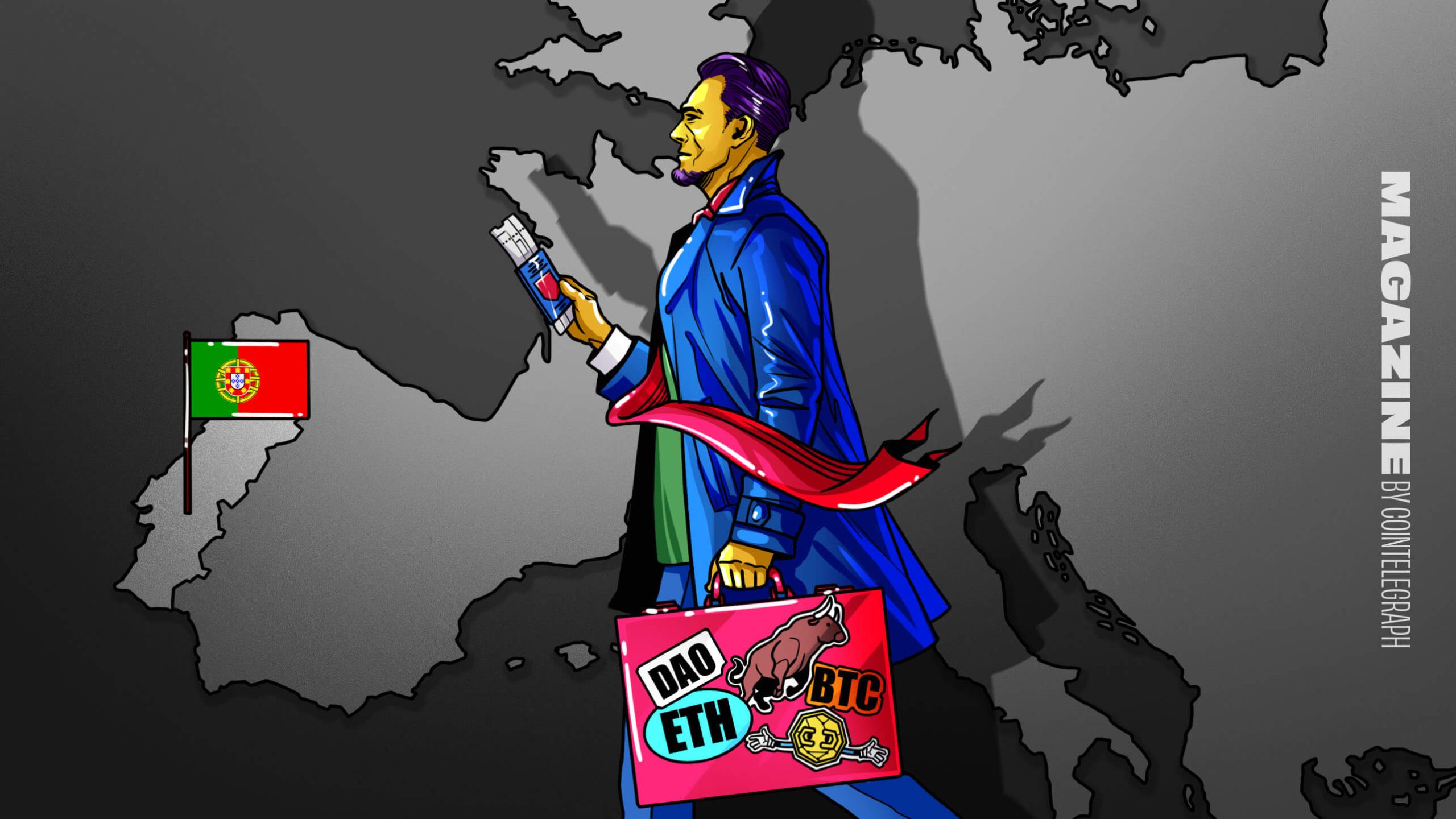



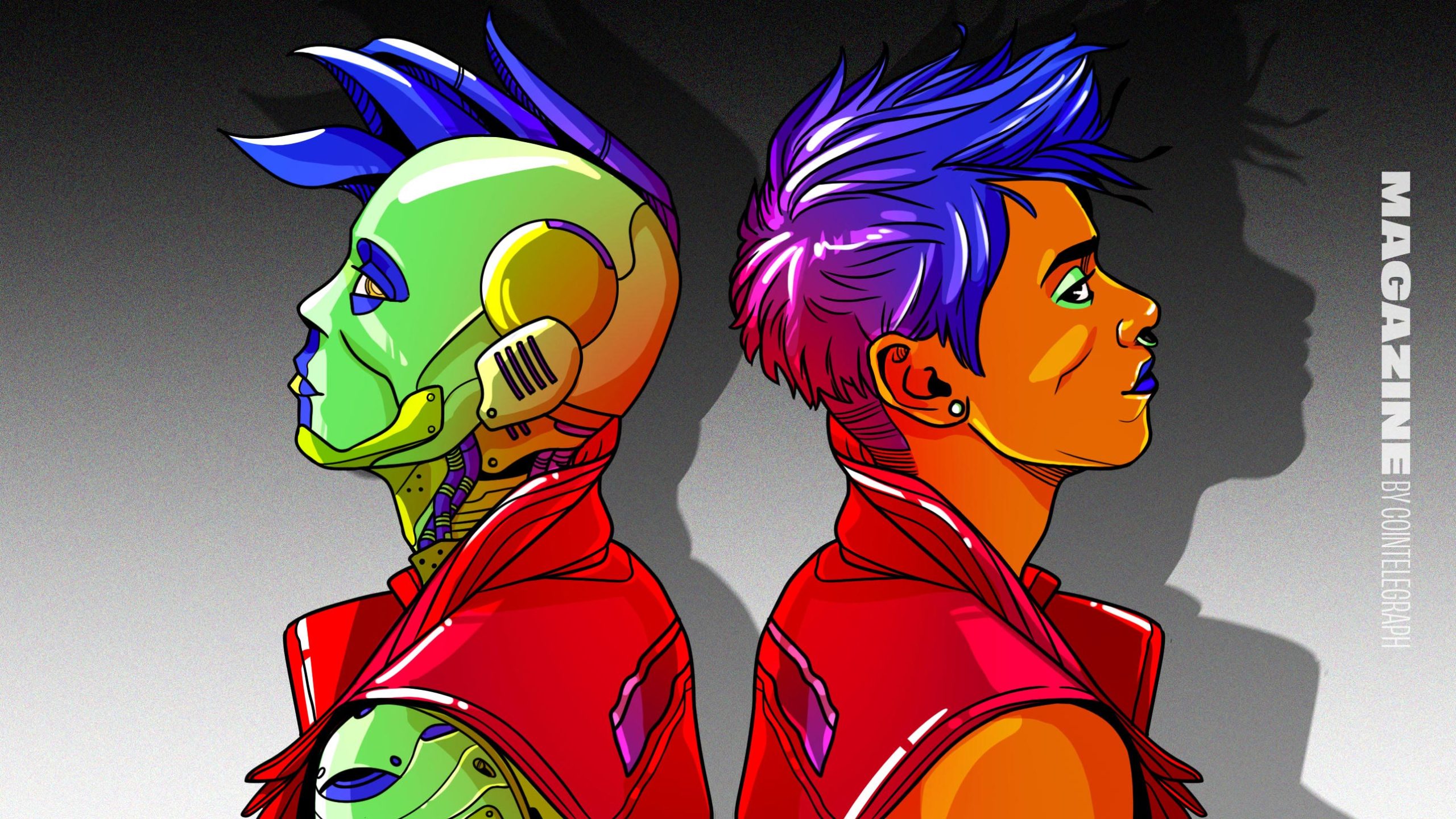
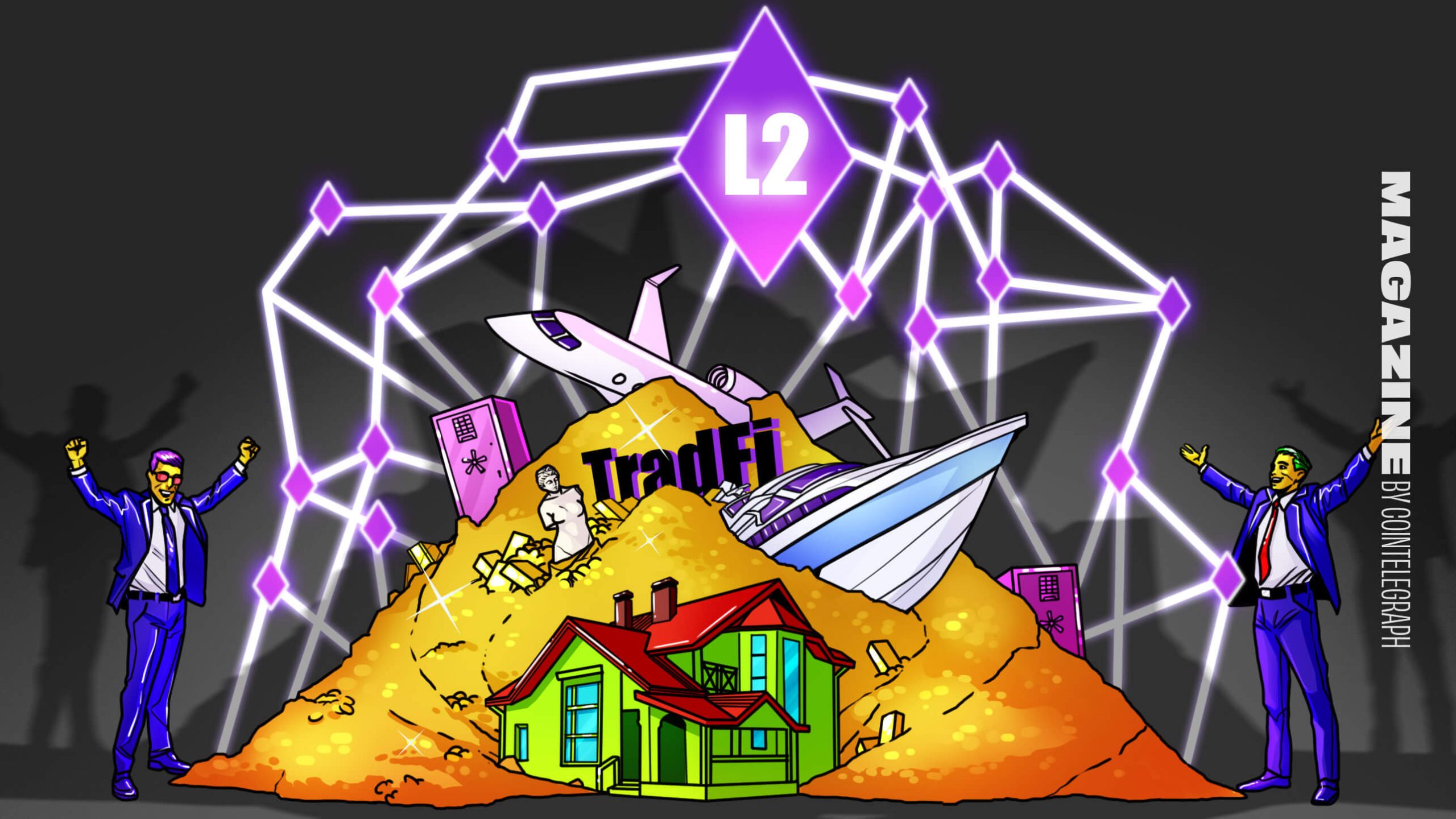

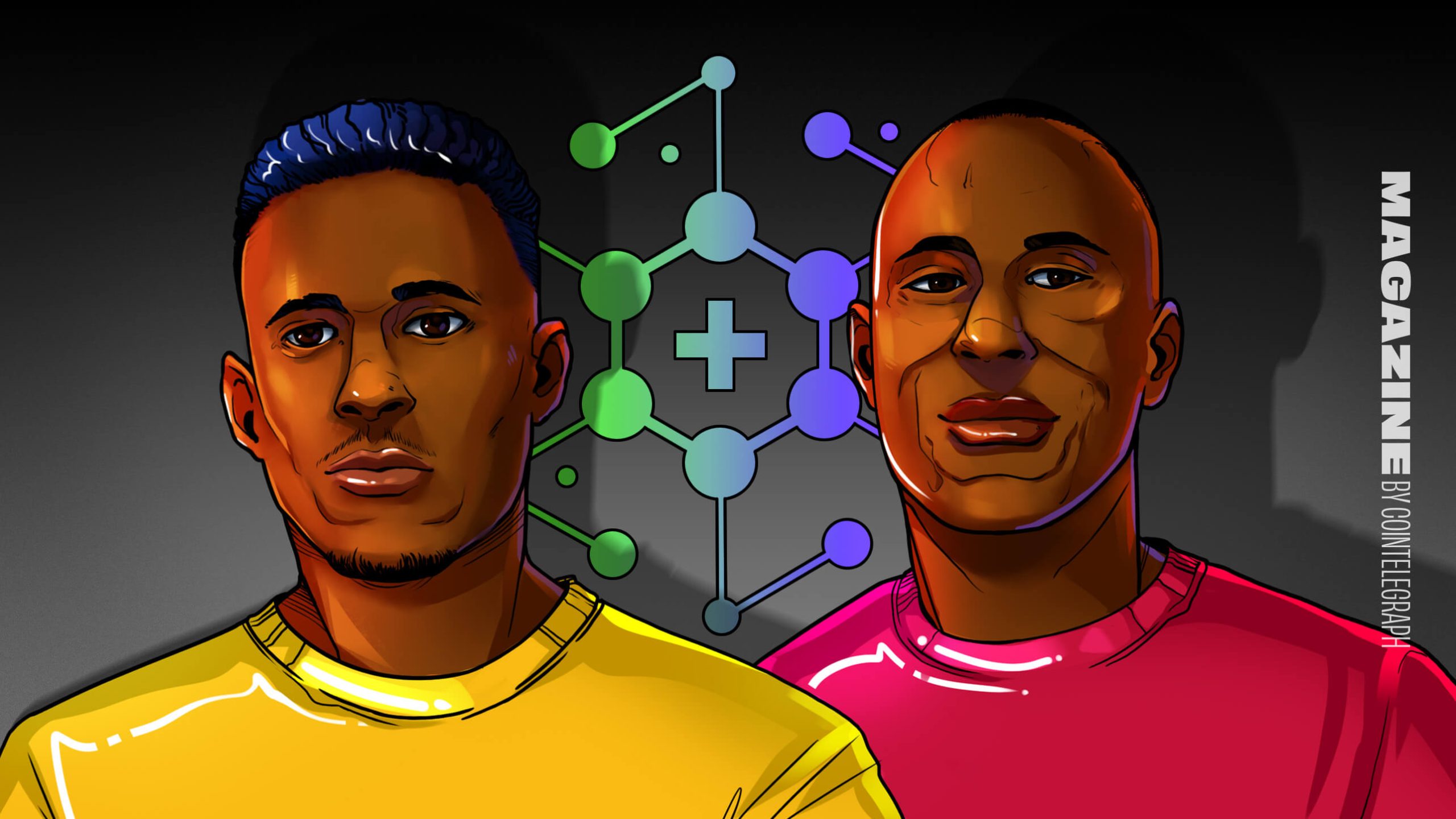





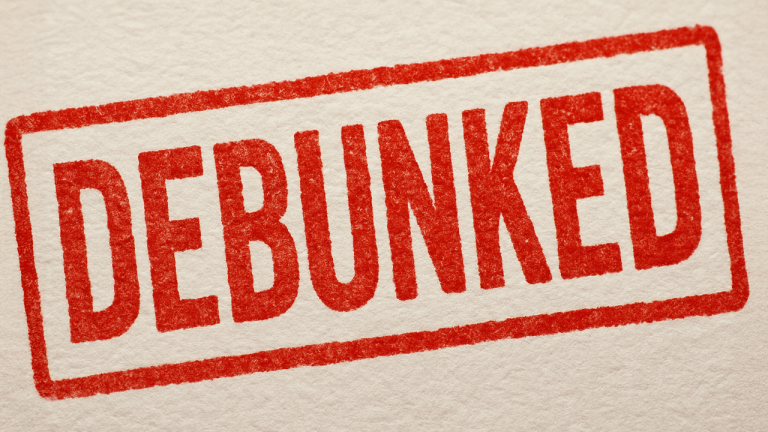

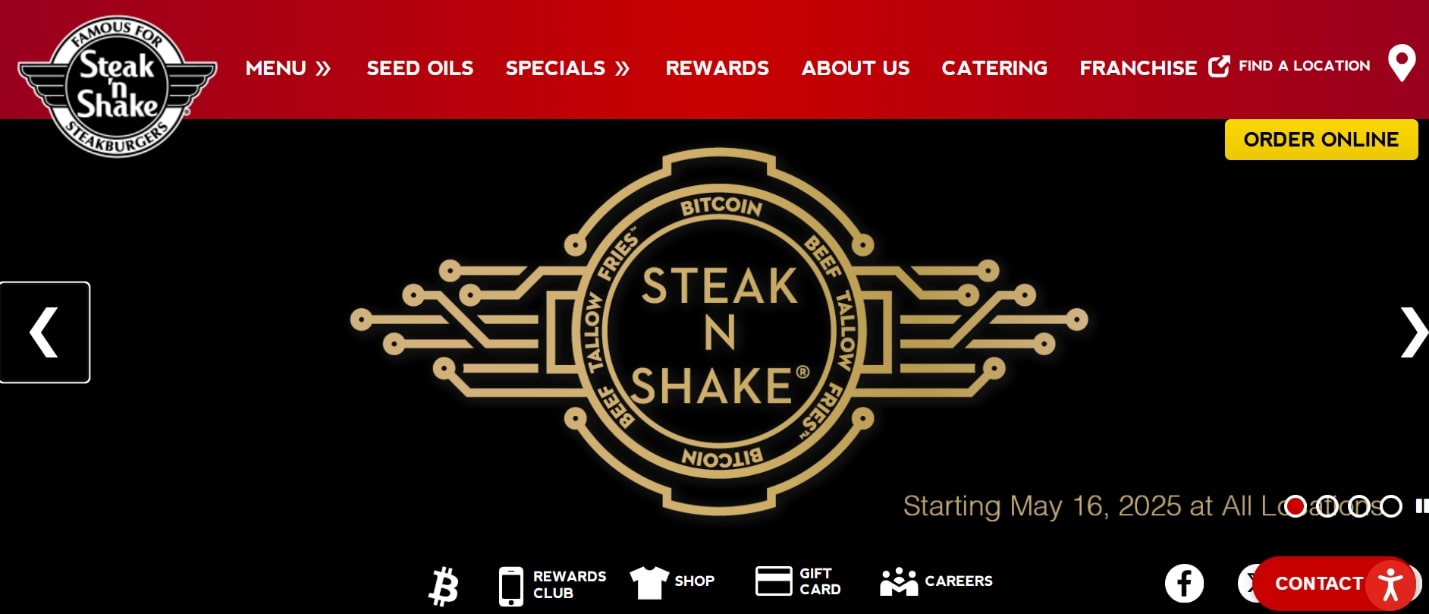

Comments